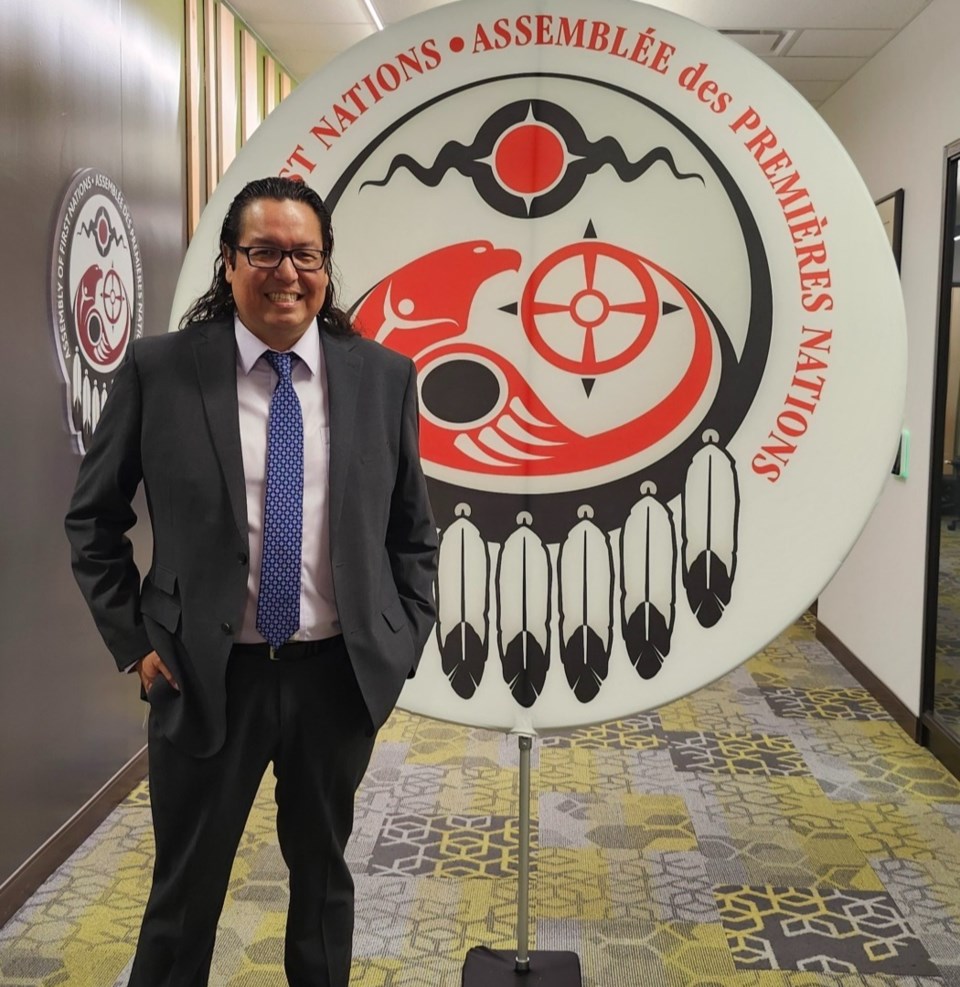WARNING: this story contains references to suicide.
OTTAWA — If federal leaders want to fast-track resource development projects, then they’ve got to help fix a number of longstanding health and social issues in First Nations, says a Northwestern Ontario chief.
Jeff Copenace, the chief of the Ojibways of Onigaming First Nation, southeast of Kenora, spoke at an Assembly of First Nations press conference in Ottawa on Wednesday, a day before a large summit between Indigenous leaders, Prime Minister Mark Carney and the Privy Council Office.
Copenace spoke about the high number of deaths in his community (46 over the past four years, he said), due to a wide range of causes, including those by suicide, and the ongoing state of emergency in Onigaming.
“For communities like ours that are in states of emergency right now for mental illness and for suicides, it's nearly impossible for us to engage — in good faith — when it comes to development of our resources or any other developments that happen in our territory,” he told Newswatch.
“For myself, it's really a matter of coming to the table with the Prime Minister (Thursday) to tell him, and to urge him, not to leave communities like Onigaming behind.”
The nearly four dozen deaths are particularly acute in a community of about 900 people and many of them have been young, Copenace said, adding that “only a small number have been natural deaths, which is alarming to me.”
“Everybody from our teachers to our chief and council, to our health workers, to our mental health workers, almost everybody suffered a loss,” he said.
Onigaming’s state of emergency has been in place since 2014 — a year, Copenace said, where there were multiple suicides. “We've had multiple since,” he said.
“We're really just urging the Prime Minister that, as long as they're looking to build, we're looking to build too, but we're looking differently — we're looking at infrastructure for our youth.”
The community has taken steps to foster conditions aimed at lifting that state of emergency, Copenace said, including instituting a community safety patrol, a crisis response team and bringing in crisis counsellors “as much as we can.”
Things the First Nation is eyeing include funding and support for a new youth-focused recreation facility, as well as youth crisis and safe sobering beds. Right now, he said, young people are being sent to Gimli, Manitoba when there’s a crisis.
“It's going to be really difficult for communities like ours to participate again in the type of fast-tracking of the economy that the Prime Minister wants when we're dealing with these urgent emergencies on a day-to-day basis,” Copenace said.
“I feel like there's been at least one funeral a month since I've been chief in the past four years … and it's really impossible to have progress when you're dealing with such a level of grief, loss, and trauma and pain.”
Copenace said, while it’s difficult being away from his community during hard times, he’s hoping to deliver his message to Carney personally.
“I'm hoping for the opportunity to look Prime Minister Carney in the eye and tell him that, of course he's got our love and respect the same way we love and respect our own community members,” he said.
“And that he is a treaty partner, and as a treaty partner, we're looking at him to help support our treaty rights, but mostly we're just looking for some help for our young people.”
If you or someone you know is struggling, help is available through Canada's Suicide Crisis Helpline (call or text 988), Kids Help Phone (1-800-668-6868; text 686868; kidshelpphone.ca), and the Canadian Association for Suicide Prevention (suicideprevention.ca/resources).
